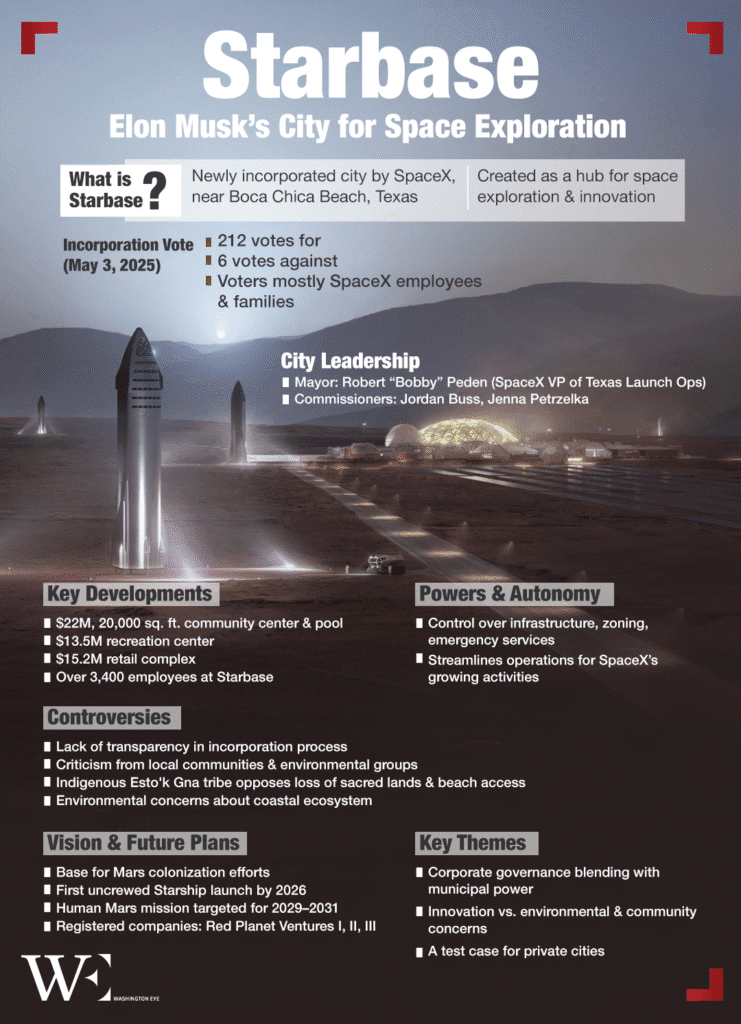In a bold move that blurs the lines between corporate ambition and municipal governance, Elon Musk’s SpaceX has successfully transformed its South Texas launch site into an incorporated city named Starbase. Located near Boca Chica Beach, this newly minted municipality reflects Musk’s vision of a self-sustaining hub for space exploration and innovation.
On May 3, 2025, residents voted overwhelmingly—212 in favor and 6 against—to incorporate Starbase as an official city. The electorate primarily comprises SpaceX employees and their families, many of whom reside in company-owned housing within the area. The city’s leadership mirrors its corporate roots: Robert “Bobby” Peden, SpaceX’s Vice President of Texas launch operations, was elected mayor unopposed, alongside commissioners Jordan Buss and Jenna Petrzelka.
The incorporation grants SpaceX greater autonomy over local governance, including infrastructure development, emergency services, and zoning regulations. This move aims to streamline operations and support the company’s expansive activities at the site, which employs over 3,400 individuals.
Significant investments are underway to enhance the city’s infrastructure. Projects include a privately funded $22 million, 20,000-square-foot community center and swimming pool near the Rio Grande, a $13.5 million recreation center, and a \$15.2 million retail complex. These developments are designed to improve the quality of life for residents and support the growing workforce.
However, the rapid transformation of the area has sparked controversy among local communities and environmental groups. Critics argue that the incorporation process lacked transparency and marginalized non-SpaceX residents. Environmentalists express concerns over the potential ecological impact of increased rocket launches and infrastructure development on the fragile coastal ecosystem. Indigenous leaders from the Esto’k Gna tribe have also voiced opposition, citing the desecration of sacred lands and loss of public access to Boca Chica Beach.
Despite these challenges, Musk remains steadfast in his vision for Starbase. The city is envisioned as a launchpad for Mars colonization efforts, with plans to initiate uncrewed Starship missions by late 2026 and potential human missions by 2029 or 2031. Recent filings indicate the establishment of three Mars-themed companies—Red Planet Ventures I, II, and III—suggesting strategic preparations for interplanetary endeavors.
As Starbase continues to evolve, it stands as a testament to the possibilities and complexities of integrating corporate ambition with municipal governance. The city’s development will undoubtedly serve as a case study in balancing innovation with community and environmental stewardship.
















